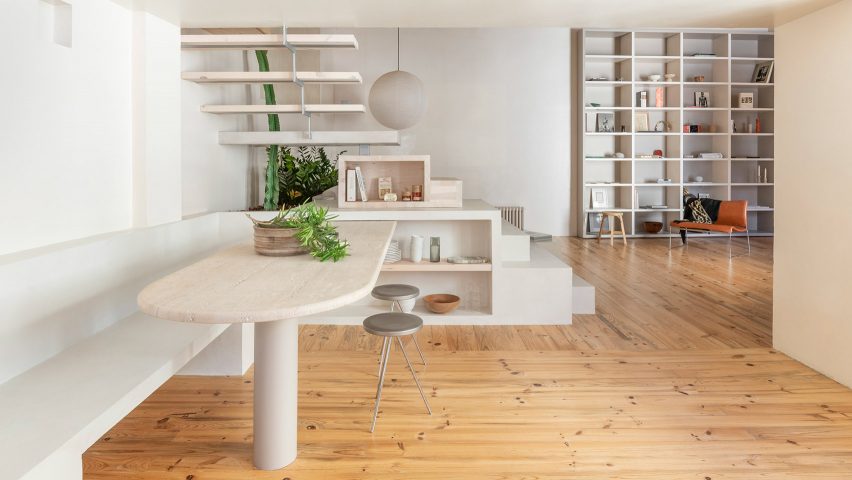
Wabi-sabi philosophy leads revamp of Palau apartment in Barcelona
Local studio Colombo and Serboli Architecture has completed a clean and contemporary renovation of an apartment in Barcelona, spotlighting some of its "imperfect" original features.
The Palau apartment is situated a stone's throw from the city's Palau de la Música concert hall and backs onto a cluster of secluded courtyards.
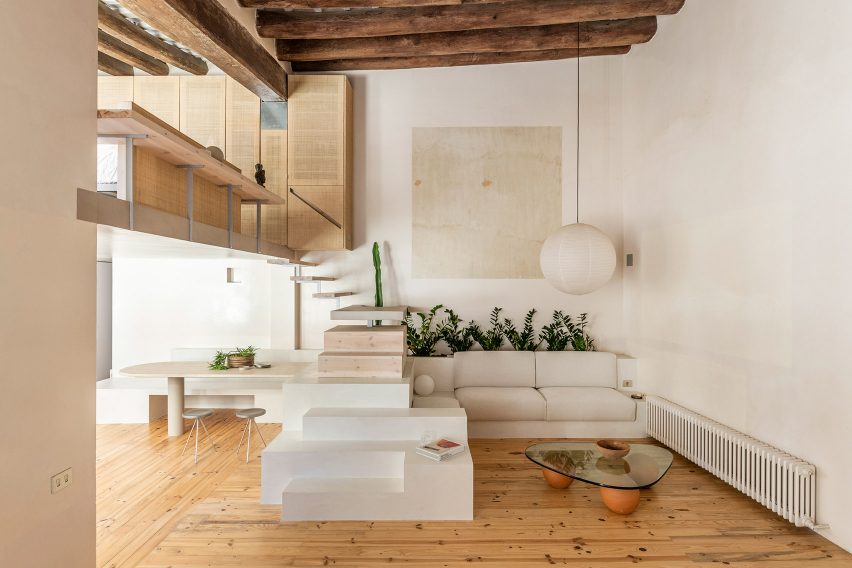
Its owner, an Italian fashion designer, had initially asked Colombo and Serboli Architecture to upgrade only the bathroom and closet storage. But the practice suggested carrying out a more extensive renovation that indulged the apartment's lofty proportions.
The practice also wanted to place greater emphasis on the home's existing quirks in the spirit of wabi-sabi – the Japanese philosophy that celebrates the beauty of imperfections and the changes that come with the passage of time.
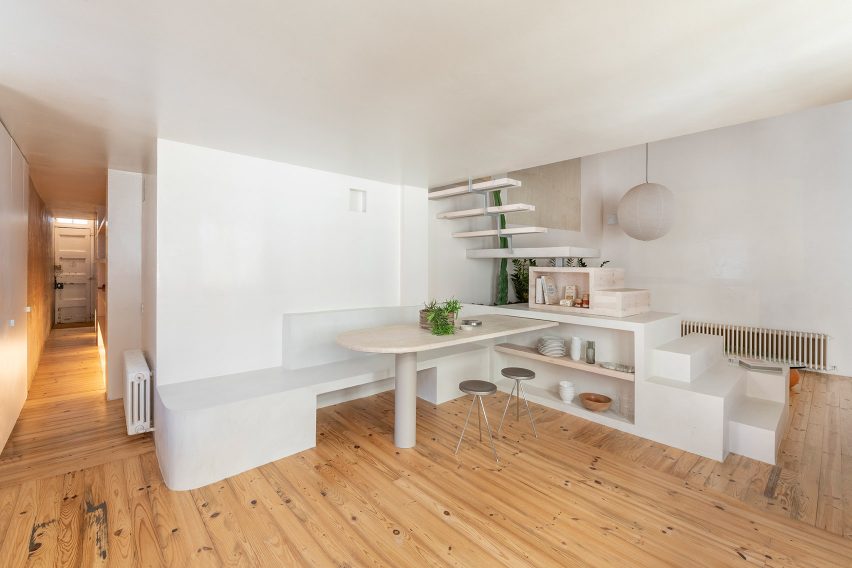
"We decided to face the project through a wabi-sabi approach that could easily incorporate original features and imperfections while retaining the charm of the apartment," the studio explained.
"Shapes are kept simple and bold with recurring basic forms – squares, circles, spheres – while sturdy solid surfaces were used to combine the monumental language of existing elements."
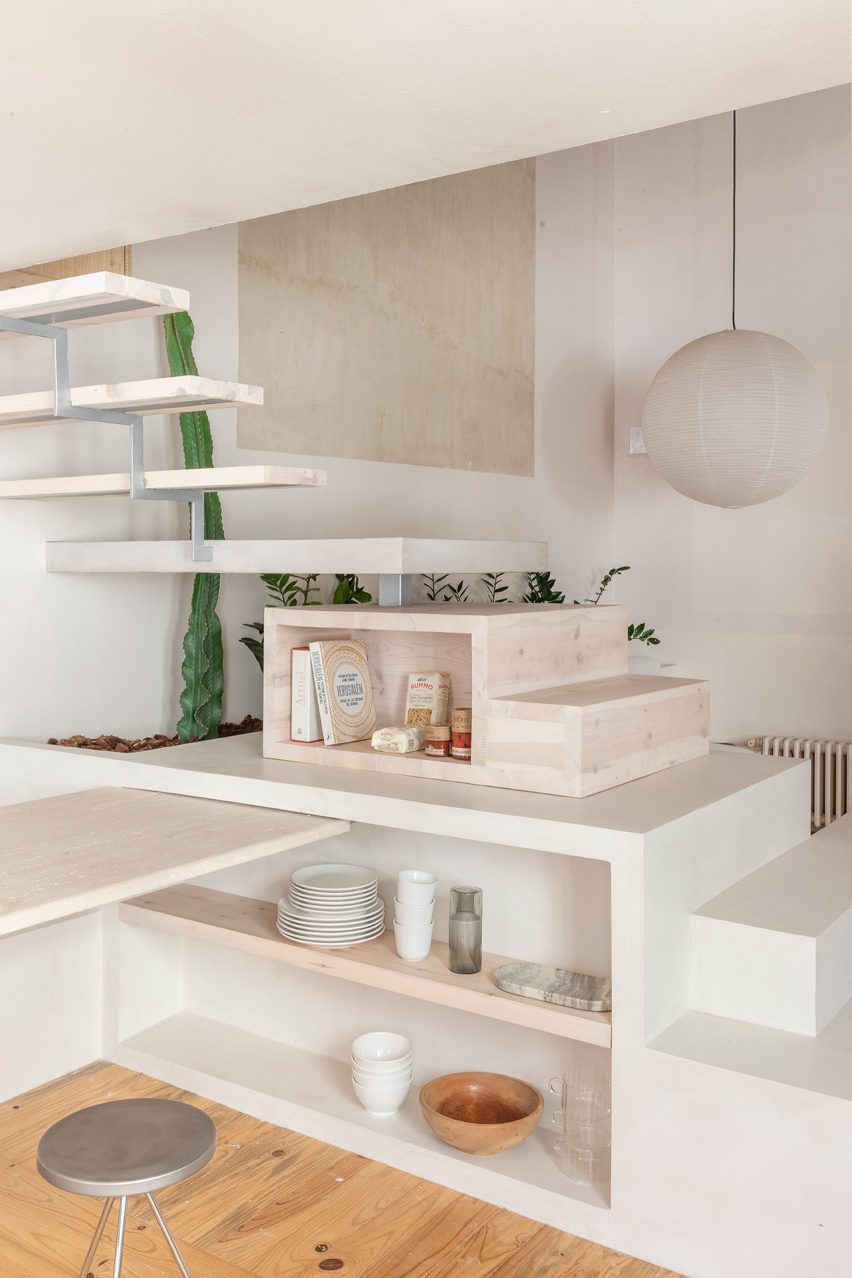
The apartment is entered via a narrow hallway, where the practice left much of the original stucco walls exposed to reveal "layers of history".
At the heart of the floor plan is a new multi-part staircase. It begins with a few suspended steps crafted from pale timber, followed by a micro-cement landing and a couple more timber steps.
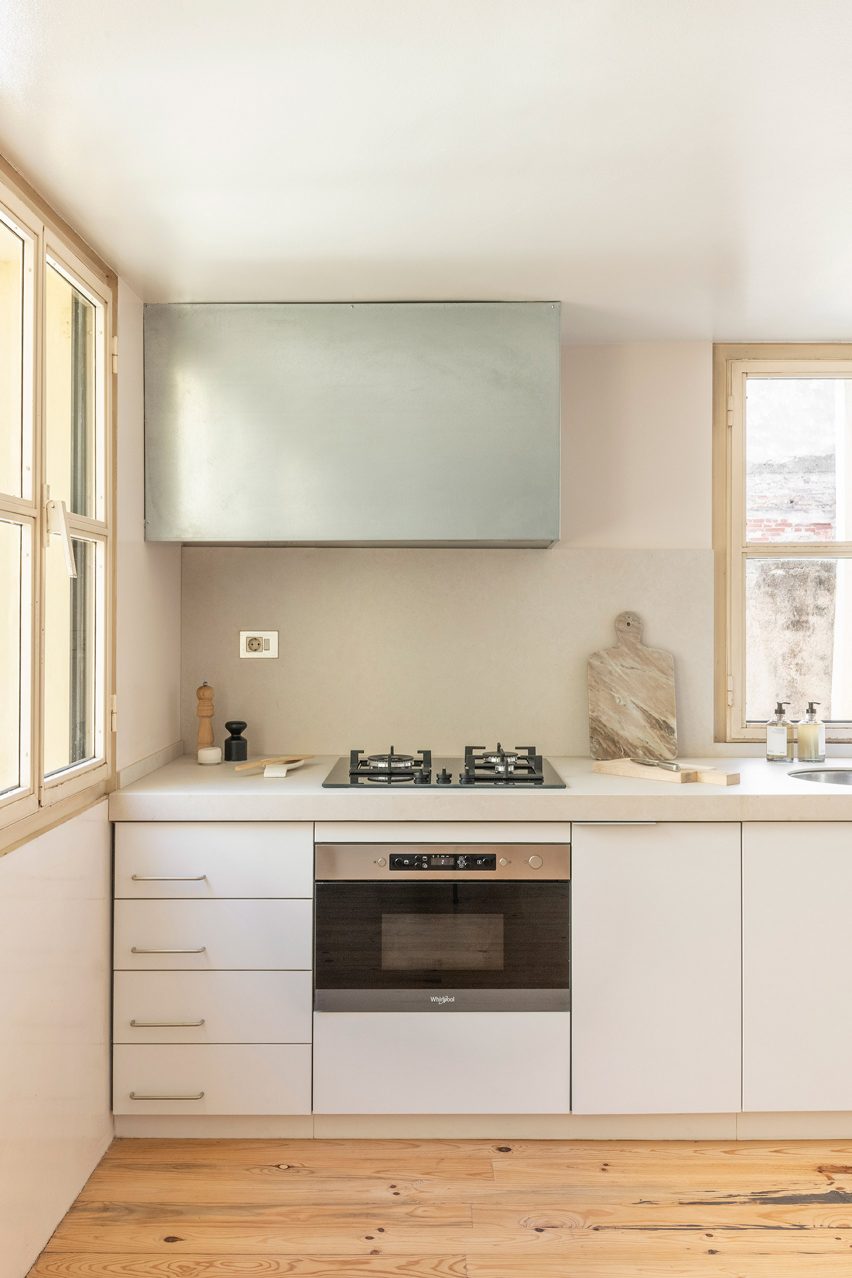
The bottom block of steps is painted white and dog-legs around the wall to form a planted backrest for a white boucle sofa.
This small sitting area is dressed with a spherical paper lamp and a glass coffee table supported by terracotta orbs. Another large weathered patch of the apartment's original stucco walls was preserved at the rear of the space.
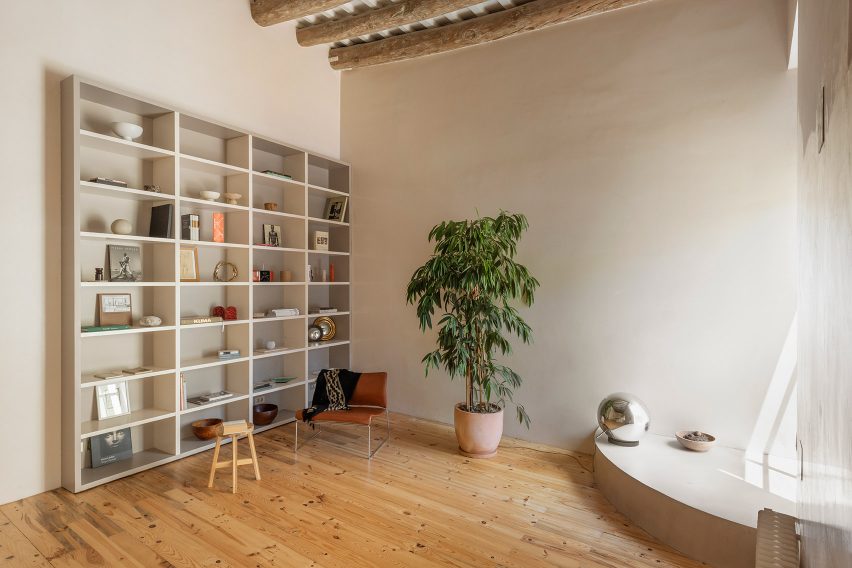
The bottom section of the staircase also extends in the other direction to form a bench seat for the arched travertine table in the dining area. Steps facing this part of the home were hollowed out to accommodate crockery, recipe books and cooking ingredients.
Nearby, an all-white kitchen suite is finished with a porcelain countertop and backsplash. A bespoke boxy kitchen hood made from brushed steel was installed above the stove.
Just opposite the apartment's sitting area is a larger double-height living room, illuminated by a tall corner window.
At its base, Colombo and Serboli Architecture created a chunky micro-cement platform where the owner can perch and take in views across the courtyards.
On the opposite side of the room, a 3.5-metre-high gridded shelf provides space for the owner to display his ever-growing collection of books and art objects.
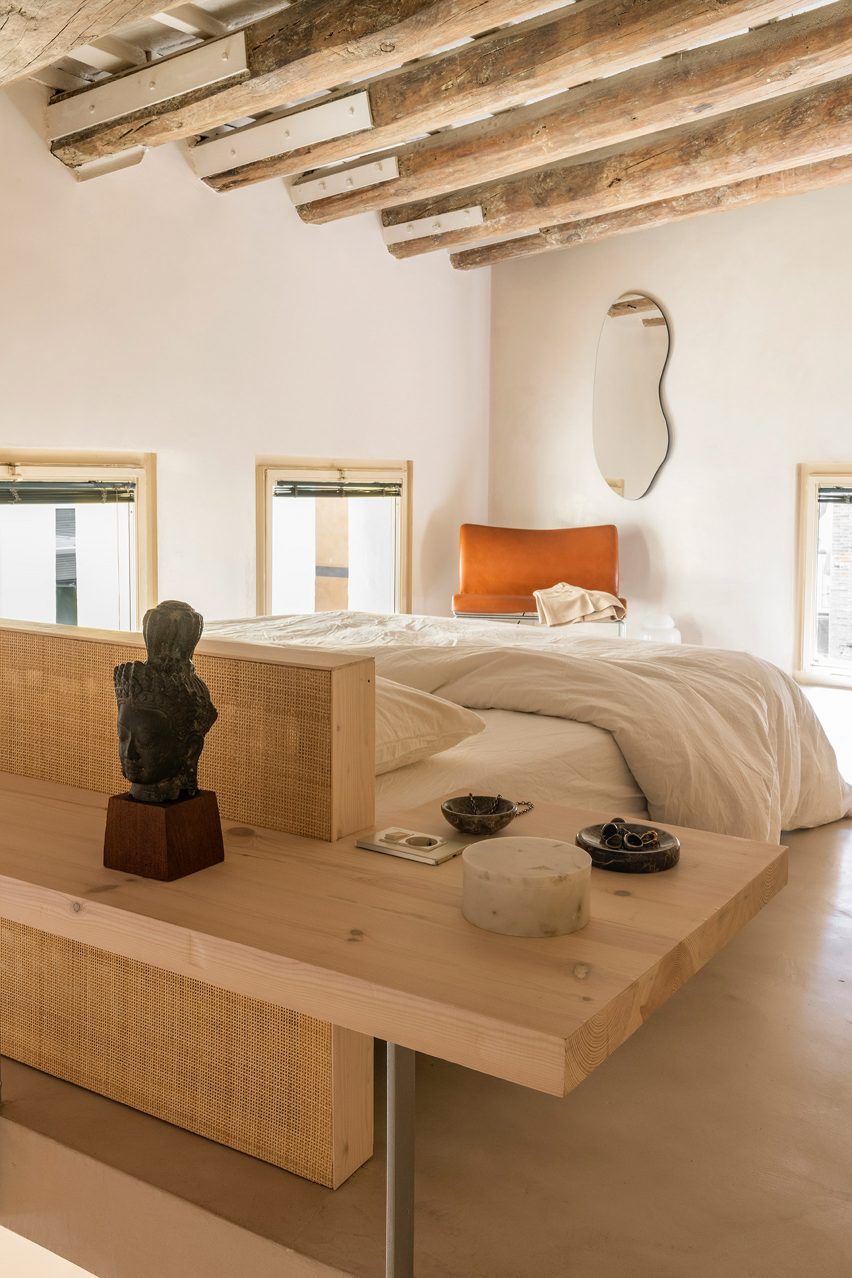
The bedroom can be found on the apartment's mezzanine level. One side of the room is taken over by a closet, which the studio fronted with wicker doors to turn it into a "warm monolith".
LED lighting fitted on top of the storage draws attention to the apartment's time-worn wooden ceiling beams.
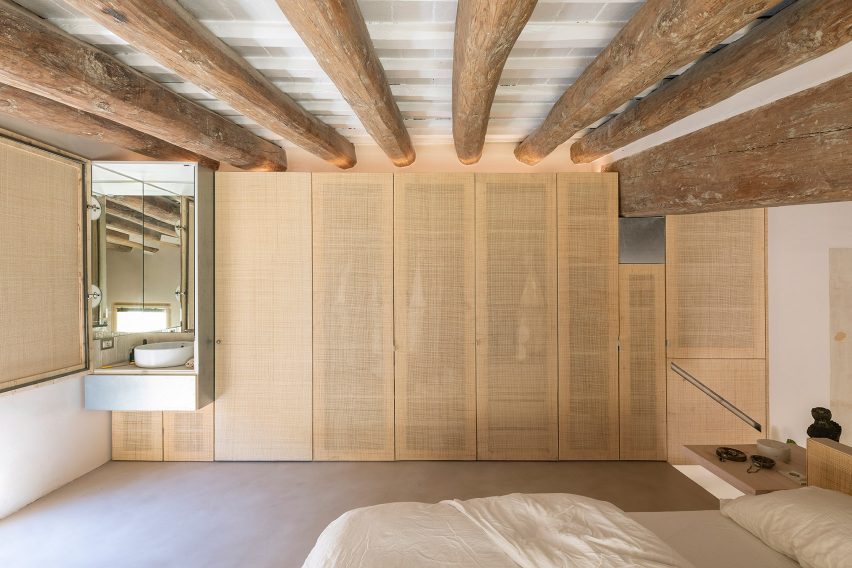
One door of the closet has a diagonal cut-out that functions as a handrail for the stairs, while another can be pulled back to reveal a small nook containing a mirror and washbasin.
A third door hides the apartment's bathroom, which is clad entirely in iridescent mother-of-pearl tiles.
"We played with different finishes, from glossy to rough, against the otherwise neutral palette," explained the practice.
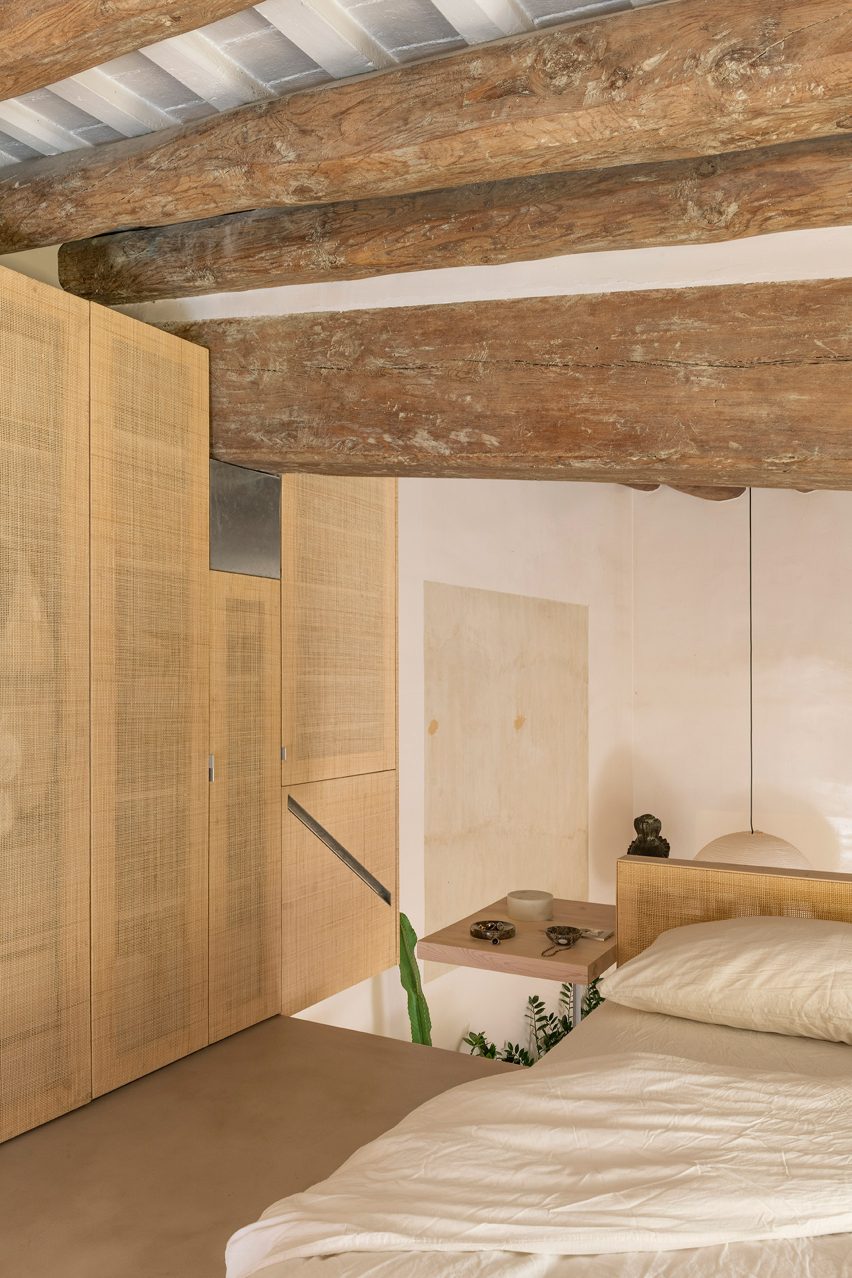
The same wicker used for the closet was wrapped around the bed's headboard, which doubles as a balustrade for the mezzanine. Surrounding the headboard is a thick wooden ledge that forms two bedside tables.
The space was otherwise modestly decorated with a vintage orange leather chair and a wobbly-edged mirror.
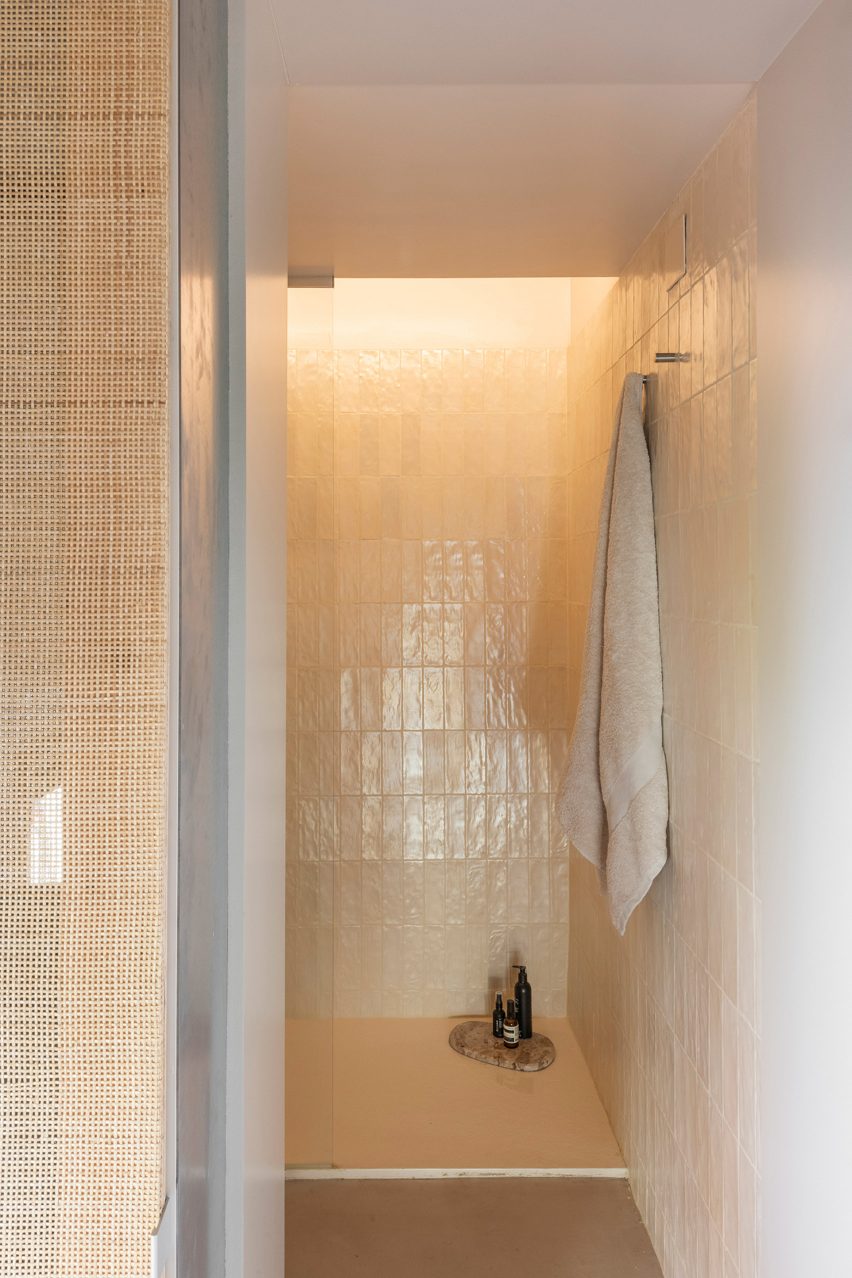
Colombo and Serboli Architecture, which is run by Italian architects Matteo Colombo and Andrea Serboli, has revamped a number of homes around Barcelona in recent years.
Among them is the Klinker Apartment, which features brightly-coloured paintwork, and the Font 6 flat where a porthole window peeps through from the kitchen to the bathroom.
The photography is by Roberto Ruiz.
Project credits:
Architecture: Colombo and Serboli Architecture
Styling and art direction: CaSA